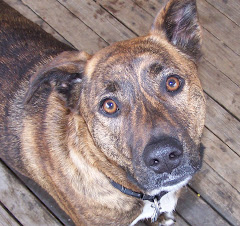Today's Water Tip:
Soak those aching bones in a warm bath with a little epsom salt and some skin safe essential oils or bath oil. The epsom salt draws out toxins, and the scented oil sooths your skin and soul.
Cross Connections
Well I hope you haven't forgotten about me by now, I have been on another roller coaster ride fueled by the busy water season. Every year starting in the spring we get bombarded by customers who need to meet requirements for what is called Cross Connection Control. It's good for business, but some people who have to pay for cross connection control, feel it's not so good for them.
Cross connection control is the program which helps to eliminate the risk of contamination to our public drinking water supply. A common example are underground sprinkler systems serving yards and gardens. The sprinklers make life a lot easier for many, but if these sprinklers are fed by the public drinking water source, there is a risk. The risk seems very small to many, but in the case of a water line break, pump failure, or increased water usage (heavy irrigation or fire hydrant use for example), a negative pressure can occur within the water pipes, resulting in water in the lines reversing its flow. Water from the sprinkler lines can then be back siphoned into the drinking water. This water can contain dirt, debris, animal waste, chemical residue, and if the system is chemically injected, the risk grows higher. Water system operators will be requiring back flow prevention to be installed to control the risk, if they are not already doing so.
A higher risk is associated with industry, home business, campgrounds, piers, docks, medical facilities, etc. In any case where the domestic water supply is connected to a source of contamination, an approved air gap or a back flow prevention assembly is necessary. Certain equipment (such as boilers) can build up so much pressure it can actually push the water back in the reverse direction (back pressure). Contamination from that piece of equipment or anything it is connected to goes with it. Certain types of equipment may contain toxic liquids or hazardous waste that can be pushed back into the drinking water supply. We have many more harmful contaminants in our world now, than did our grandparents. We have to change with the times to ensure safety.
I don't know about you, but I just want a glass of water, nothing else. The safety measures taken are to guarantee that. No mater how small the risk, it is a risk to our health, plain and simple.
The wide spectrum of water uses, turn round and round, like a water wheel. I welcome your comments
Wednesday, October 15
Subscribe to:
Post Comments (Atom)














2 comments:
Fortunately, many local government authorities are now requiring backflow prevention to be installed at businesses and on residential sprinkler system. Generally they require yearly testing to assure compliance.
That is fortunate. Many Cities, County's and Water Associations already have programs, although some are just now implementing them. We do a lot of annual back flow assembly testing through our company, Trout's Quality Water.
Post a Comment